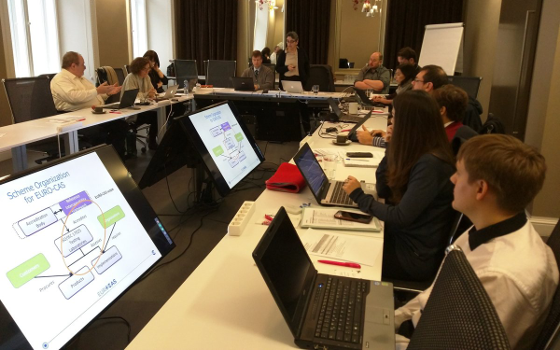Led by IHE-Europe, a recognised leader in eHealth standards, the EURO-CAS consortium consists of representatives and competence centres of key European regions and Member States, as well as experts and international associations. Together they will assess the interoperability requirements of European health systems and analyse the existing testing and certification schemes, before developing and testing a European conformity scheme in several regions, guided by an advisory board of additional experts and policymakers. The finalised EURO-CAS model will be presented in November 2018 to the public.
"Lack of interoperability is both a reason for, and a result of, the fragmentation of eHealth markets in Europe and the endurance of information silos," says Karima Bourquard, Director of interoperability at IHE Europe, and scientific coordinator of EURO-CAS. "The EURO-CAS conformity assessment scheme will provide a comprehensive framework, with flexibility to allow better sustainability and harmonisation at European, national and regional levels."
EURO-CAS will build on the findings and results of a series of EU-funded projects that have advanced eHealth interoperability within and between Member States in the last years, and will provide a scheme consistent with the Refined eHealth European Interoperability Framework endorsed by representatives of all 28 European Member States in 2015.
The EURO-CAS conformity assessment scheme for Europe will consist of models, processes and tools that will enable and strengthen the capability of test centres to assess eHealth product and solutions, not only in regard to international standards and interoperability requirements of European eHealth projects, but also in regard to national and regional eHealth requirements.
The EURO-CAS project is committed to transparency and openness, and invites interested parties to join and contribute. They can engage face to face with consortium members during EURO-CAS events, or offer comments and feedback to key deliverables that will be offered for public consultation.
For further information, please visit:
http://www.euro-cas.eu
About the EURO-CAS project
The European eHealth Interoperability Conformity Assessment Scheme for Europe (EURO-CAS) will between 2016 and 2018 develop the sustainable Conformity Assessment Scheme (CAS) for Europe, which will promote the adoption and take-up of interoperability testing of eHealth solutions against identified eHealth standards and profiles defined in the eHealth European Interoperability Framework (eEIF). The project is led by IHE Europe (BE) and coordinated by EIBIR (AT), and joined by fourteen national and regional government bodies, competence centres, and associations. The EURO-CAS project has received funding from the European Union’s Horizon 2020 research and innovation programme under grant agreement No. 727028.
